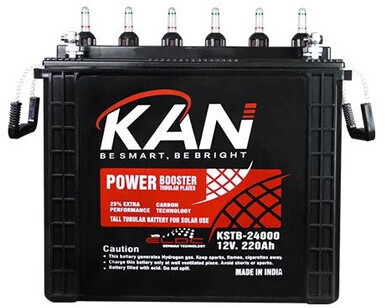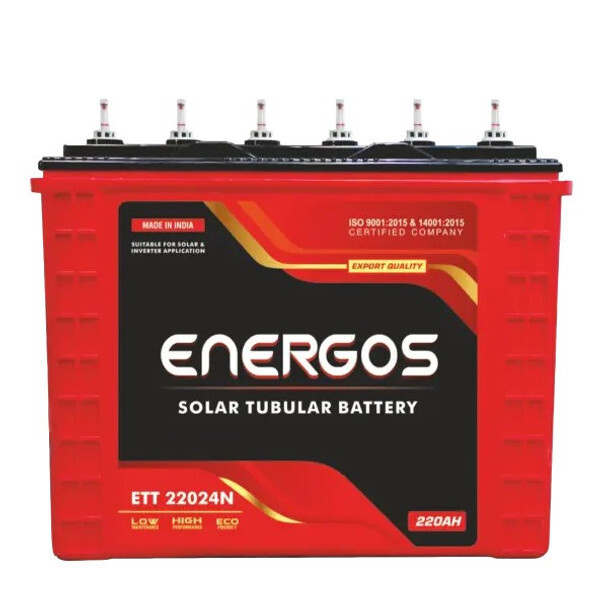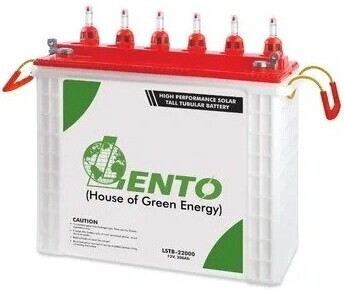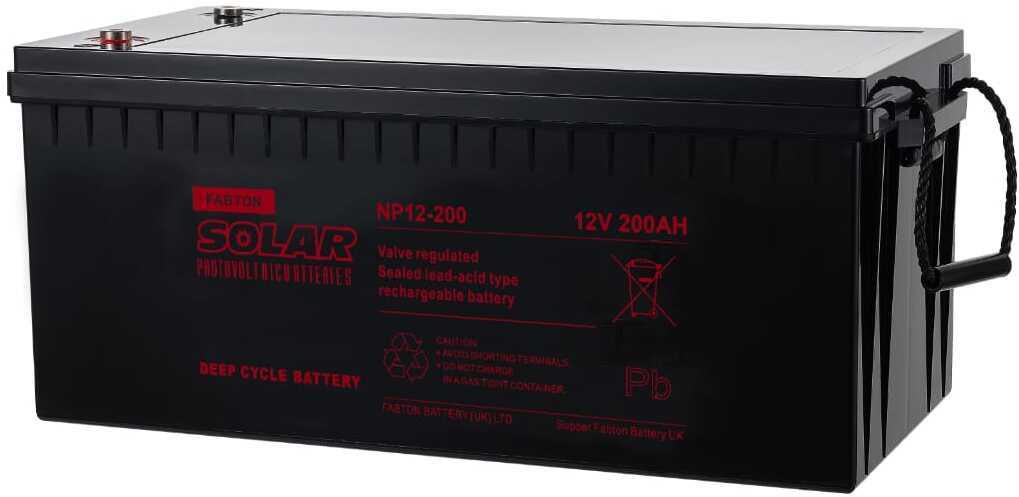How to Identify a High-Quality Inverter Battery for Industrial Use
Introduction
In industrial settings, power interruptions can lead to significant operational downtime, affecting productivity and profitability. A high-quality inverter battery is essential for ensuring a reliable power backup system that can handle the demands of heavy-duty industrial equipment. However, with the numerous battery options available, selecting the right inverter battery can be a challenge.
This guide will help you identify the key factors that define a high-quality industrial inverter battery, the types available, and the crucial specifications to look for before making a purchase.
Read more...The Best Inverter Battery in Nigeria 2024 Review
Key Takeaway
- Battery Type Matters – Lithium-ion batteries offer higher efficiency and longer lifespan, while tubular lead-acid batteries provide cost-effective deep-cycle performance for industrial use.
- Capacity & Cycle Life Are Crucial – A high-quality inverter battery should have a high amp-hour (Ah) rating and at least 2,000-3,000 charge cycles to ensure long-term reliability.
- Durability & Build Quality Define Longevity – Industrial batteries should feature corrosion-resistant casing, shock-proof design, and protection against deep discharges to withstand harsh operating conditions.
- Energy Efficiency & Fast Charging Improve Productivity – Look for batteries with low self-discharge rates, high charge retention, and quick recharge capabilities to reduce downtime.
Kan 12v. 220AH Solar Tubular Battery
Understanding Industrial Inverter Battery Requirements
Industrial facilities require a stable and long-lasting power backup solution to support high-energy-consuming machines. Unlike residential inverter batteries, industrial batteries are designed to handle continuous high-load operations and frequent charge-discharge cycles.
Key Factors Affecting Industrial Inverter Battery Performance
- Load Capacity – The battery must support high power demands from welding machines, compressors, and heavy-duty motors.
- Deep Cycle Capability – Unlike car batteries, industrial inverter batteries must sustain long discharge durations without performance degradation.
- Durability & Heat Resistance – Industrial environments often involve high temperatures, vibrations, and power surges, requiring robust battery construction.
- Fast Charging & Energy Efficiency – An industrial inverter battery should recharge quickly while minimizing energy loss to avoid downtime.
Read more...Comparing the Best Inverter Battery Brands for Industrial Applications
Types of Inverter Batteries for Industrial Use
There are different types of inverter batteries available, each with unique advantages and limitations. Understanding these options will help you choose the right one for your industrial application.
Lead-Acid Batteries (Tubular & Flat Plate)
Pros:
- Affordable and widely available.
- Suitable for high-power applications with deep-cycle capability.
- Tubular lead-acid batteries last longer than flat plate ones.
Cons:
- Requires regular maintenance (water top-ups).
- Bulkier and heavier than modern alternatives.
- Shorter lifespan compared to lithium-ion batteries.
AGM & Gel Batteries
Pros:
- Maintenance-free with sealed designs.
- Spill-proof and vibration-resistant, ideal for rugged industrial environments.
- Longer lifespan than standard lead-acid batteries.
Cons:
- Higher cost than traditional lead-acid batteries.
- Not as energy-efficient as lithium-ion batteries.
Lithium-Ion Batteries
Pros:
- Longest lifespan (3,000+ charge cycles).
- Faster charging and higher energy efficiency.
- Lightweight and compact.
- Minimal maintenance required.
Cons:
- Expensive upfront cost, but long-term savings due to durability and efficiency.
- Requires specialized charging systems.
Energos 12V-220AH Tubular Battery
Key Features of a High-Quality Industrial Inverter Battery
To ensure reliability and efficiency, a high-quality inverter battery should possess the following features:
High Amp-Hour (Ah) Capacity
The Ah rating determines how long a battery can supply power before needing a recharge. A higher Ah battery is essential for industrial use, ensuring extended backup during power outages.
Deep Cycle Performance
Unlike regular batteries, industrial batteries must handle multiple charge-discharge cycles without performance degradation. Look for deep-cycle technology for longer-lasting power supply.
Long Cycle Life
Battery lifespan is measured in cycles (one full charge and discharge). High-quality inverter batteries should have:
-
Lead-acid: At least 1,500 cycles.
-
Lithium-ion:3,000+ cycles for long-term performance.
Fast Charging & High Energy Efficiency
Industrial operations require minimum downtime, making fast-charging capabilities crucial. A high-quality inverter battery should recharge quickly while retaining maximum energy efficiency to prevent wastage and overheating.
Durability & Safety Features
A good industrial inverter battery should be built to withstand harsh conditions such as:
-
High temperatures – Prevents overheating and thermal runaway.
-
Shock resistance – Ensures protection in rugged environments.
-
Overcharge & Deep Discharge Protection – Prevents damage and extends battery life.
Low Maintenance Requirements
For industrial applications, maintenance-free batteries like AGM, gel, or lithium-ion are preferable. These batteries eliminate frequent water top-ups and reduce operational costs over time.
How to Evaluate Inverter Battery Quality Before Purchase
Before purchasing an industrial inverter battery, careful evaluation is essential to ensure you get a reliable and durable product.
Check Manufacturer Specifications & Certifications
Look for certifications such as:
-
ISO (International Standards Organization) – Ensures quality compliance.
-
BIS (Bureau of Indian Standards) – Validates battery safety and efficiency.
-
CE Certification – Indicates compliance with international safety standards.
Assess Battery Build Quality
-
The battery should have a strong, corrosion-resistant casing to protect internal components.
-
Look for heavy-duty terminals that prevent loose connections and power loss.
Compare Brands & User Reviews
-
Reputable brands often provide better performance, longevity, and warranty coverage.
-
Check user reviews and feedback to gauge real-world battery performance.
Verify Warranty & After-Sales Support
-
A high-quality inverter battery should have at least a 3-year warranty.
-
Ensure that the manufacturer or supplier offers strong customer support and availability of spare parts.
Lento Tubular Battery 220ah 12v
Common Mistakes to Avoid When Buying an Industrial Inverter Battery
Many businesses make costly mistakes when purchasing inverter batteries. Here are some pitfalls to avoid:
Choosing the Wrong Battery Type
Selecting a battery with insufficient capacity or incorrect technology can lead to frequent replacements and power failures.
Ignoring Cycle Life and Maintenance Needs
-
Low-quality batteries degrade quickly and require frequent maintenance, increasing operational costs.
-
Ensure the battery is long-lasting and suitable for industrial demands.
Overlooking Warranty and Brand Reputation
-
Buying from unknown or unverified brands increases the risk of getting substandard products.
-
Always choose trusted brands with proven performance.
Prioritizing Cost Over Quality
-
While budget-friendly options may seem appealing, cheap batteries often have lower durability and performance.
-
Investing in a high-quality battery reduces long-term costs by minimizing replacements and maintenance.
Recommended Inverter Batteries for Industrial Use
When selecting an industrial-grade inverter battery, it is essential to consider durability, cycle life, energy efficiency, and power capacity. Below are four high-quality inverter batteries ideal for heavy-duty industrial applications:
Kan Inverter Battery
-
Features: Kan batteries are built with deep-cycle technology, offering long-lasting power supply and high energy retention. They are designed to withstand frequent charge-discharge cycles, making them ideal for continuous industrial operations.
-
Why Choose It? Kan batteries provide excellent durability, minimal maintenance, and stable power output, ensuring reliable backup power for factories and heavy machinery.
Energos Inverter Battery
-
Features: This battery is known for its high discharge efficiency and superior thermal management. It has fast-charging capabilities and offers high resistance to overheating, making it perfect for power-intensive industrial environments.
-
Why Choose It? Energos batteries provide optimal energy efficiency, fast recharge times, and extended operational life, reducing downtime and increasing productivity.
Lentos Inverter Battery
-
Features: Designed for long-term industrial use, Lentos batteries come with sealed lead-acid or lithium-ion technology, ensuring zero maintenance and enhanced energy storage.
-
Why Choose It? Lentos inverter batteries deliver consistent high power output, deep-cycle performance, and rugged construction, making them an ideal choice for demanding industrial applications.
Fabton Inverter Battery
-
Features: Fabton batteries are engineered with advanced grid technology, ensuring low internal resistance, high charge retention, and superior battery life.
-
Why Choose It? With long service life, resistance to deep discharges, and strong build quality, Fabton batteries are perfect for industrial facilities requiring uninterrupted power backup.
Frequently Asked Questions
1. What is the best type of inverter battery for industrial use?
The best type depends on your power needs. Lithium-ion batteries offer the longest lifespan and efficiency, while tubular lead-acid batteries are cost-effective and durable for deep-cycle applications.
2. How can I extend the life of my industrial inverter battery?
To extend battery life, avoid deep discharges, ensure proper ventilation, clean terminals regularly, and use a compatible charger that prevents overcharging or undercharging.
3. How do I determine the right inverter battery capacity for my business?
Calculate the total power load of your equipment, then choose a battery with sufficient amp-hour (Ah) capacity to support it for extended durations.
4. Are lithium-ion batteries better than lead-acid for industrial use?
Yes, lithium-ion batteries have a longer lifespan (3,000+ cycles), faster charging times, and higher energy efficiency than lead-acid batteries, though they come at a higher initial cost.
5. Where can I buy high-quality inverter batteries in Nigeria?
You can purchase reliable, high-performance inverter batteries from GZ Industrial Supplies, a trusted supplier of industrial power solutions.
Related Articles
How to Choose the Best Inverter Battery for Your Home or Business in Nigeria
Ultimate Guide to Choosing the Best Inverter Battery for Your Home in Nigeria
How to Use an Inverter Battery for Welding Applications
Conclusion
Selecting a high-quality inverter battery for industrial use is crucial for ensuring reliable power backup, long-term efficiency, and cost savings. Investing in a battery with high amp-hour capacity, deep-cycle performance, durability, and a long cycle life will improve operational productivity and reduce downtime.
By carefully evaluating manufacturer specifications, build quality, warranty, and reviews, businesses can make an informed decision when purchasing an inverter battery.
For businesses looking to invest in high-quality industrial inverter batteries, GZ Industrial Supplies offers a wide range of reliable and durable batteriesGet the best inverter battery solutions today!
Visit GZ Industrial Supplies for top-quality industrial power solutions tailored to your needs.
Recent Posts
-
The Ultimate Guide to Understanding the Difference Between Ethylene Glycol and Propylene Glycol
Introduction Glycols are versatile compounds widely used across various industries, from automotive …Apr 16, 2025 -
What are Agricultural Machinery
Introduction Agricultural Machinery is also used to improve the wide range of production prac …Apr 14, 2025 -
The Best Electrical Wire in Nigeria 2025 (Updated)
Introduction Electrical wires are the basic unit of every electrical system. Electrical wires …Apr 14, 2025








